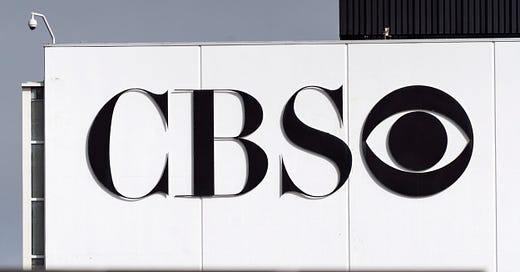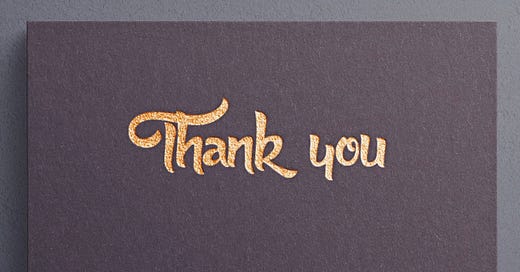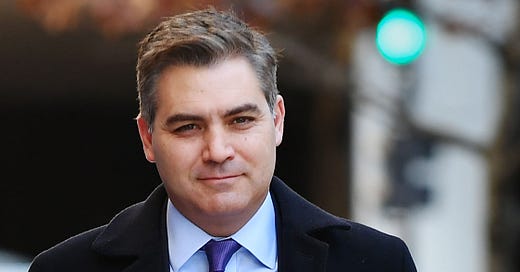
I love politics and I love this country, but I don’t love cold weather.
To this Texan, there’s cold, and there’s Iowa cold. For me, it’s the wind, the bitter wind blowing across the plains that just cuts you. I’ve spent my fair share of Januaries in the Hawkeye State reporting on the Iowa caucuses, and I can safely say there is no such thing as too much clothing. But stand by, because forecasters say this coming Monday may be the coldest ever for a caucus, with temperatures predicted to be below zero — all for an event that requires Iowans to leave the warm confines of their homes to participate in a presidential nominating contest.
Is anointing Donald Trump worth frostbite? We will soon find out.
My usual exuberance for the start of the campaign season has been chilled this year, and it’s not the weather. The healthy debates over ideas and policy have been supplanted by one question: Can anyone stop Donald Trump? For the millions of Americans not in Iowa, that is the only result from Monday’s Republican caucus they want to see.
Here are a few questions: These are the first votes being cast in the 2024 presidential nominating process, and I want to know if Trump’s lead is as large as has been reported in the polls. Will Nikki Haley punch through and take second? And would a third-place finish mean Florida Governor Ron DeSantis is, well, finished?
The Iowa caucuses, to be held in Legion halls and high school gyms across the state, have marked the official start of every presidential campaign for the last 50 years. They date back to 1848 when Iowa was admitted to the Union, but it wasn’t until 1972 that Iowans pushed to be the first contest of the quadrennial presidential race.
Here is the thing about the Iowa caucuses. History hasn’t been kind to the winners.
Since 1972, 55% of Democratic caucus winners have become the eventual nominee, while only 43% of Republican caucus winners have gone on to run in the general election. In case you don’t remember … Ted Cruz won the Republican caucus in 2016, Rick Santorum in 2012, and Mike Huckabee in 2008.
And losing Iowa doesn’t mean a lot, either. In early 2016, Trump was leading the polls in Iowa by double digits. He ended up losing to Cruz but went on to win the nomination and the election.
Why is the first-in-the-nation contest an outlier? One reason is demographics. Iowa is small, the 31st most populous state. It is whiter, older, and more rural than most of the country, so not a reflective slice of the American electorate.
Another reason is the process. This isn’t a cut-and-dried primary where voters cast a vote for their preferred candidate. A caucus is more like a meeting, where participants have to show up in person and dedicate several hours of their time. They openly discuss the issues and the candidates. It has been compared to a vetting rather than a vote.
Even considering all this, Iowa 2024 feels different. Perhaps it is because so many are actively rooting against the former president. They’ve said that if he’s going to be stopped, why not stop him from the start?
Polls and pundits are skeptical. New Hampshire, a primary state that votes next after Iowa, is widely considered the more likely upset, if there is to be one. For all such early “horse race” coverage, among the more important things to remember as the primary season starts are:
Matters to be decided include the quality of the candidates and what kind of country we are going to have moving forward.
Historically, people often “vote their pocketbooks”— that is, they vote based on their perceptions of how the economy is affecting them. Sometimes those perceptions are different from official indicators, but how most people “feel” about their pocketbooks is what counts.
Immigration is a potent issue favoring Republicans; a woman’s right to choose favors Democrats. Both early and late campaigns for turnout will focus on those issues.
Never forget that overnight is a long time in politics, and a week is forever. It’s still months before the decisive election of this year. Surprises are likely. So expect the unexpected.
Stay warm, and stay steady.
The Steady newsletter is supported by the Steady community. Please consider subscribing if you aren’t already a member.















It amazes me how the opinion of some slackjaw from Iowa is somehow more important than the opinion of a janitor in Brooklyn or a deli worker in Chicago. What makes Iowans more "American" than them? Iowans naturally deserve to choose who they like to govern them, no argument there, but they hardly represent the best we have to offer, in my opinion. If they're more inclined to vote for Republicans in general and Trump in particular, it says to me that they'd rather be the privileged subjects of an authoritarian regime than citizens of a free state.
That they believe that the benefits of a self-government should belong to them and them alone, and not to people who aren't like them, should be grounds for shame, not praise.
That we are wondering if Nikki’s Haley will beat Trump is already a sad and worrisome question. She isn’t a strong candidate. Being better than an unbalanced, indicted and convicted former president with nothing good to say about his record as POTUS isn’t saying much. I can’t think of one positive thing about her except that she isn’t Trump.
One thing Christie has right. If you can’t say aloud that Trump is unfit, you are unfit. That she will pardon Trump says as much as I need to know b